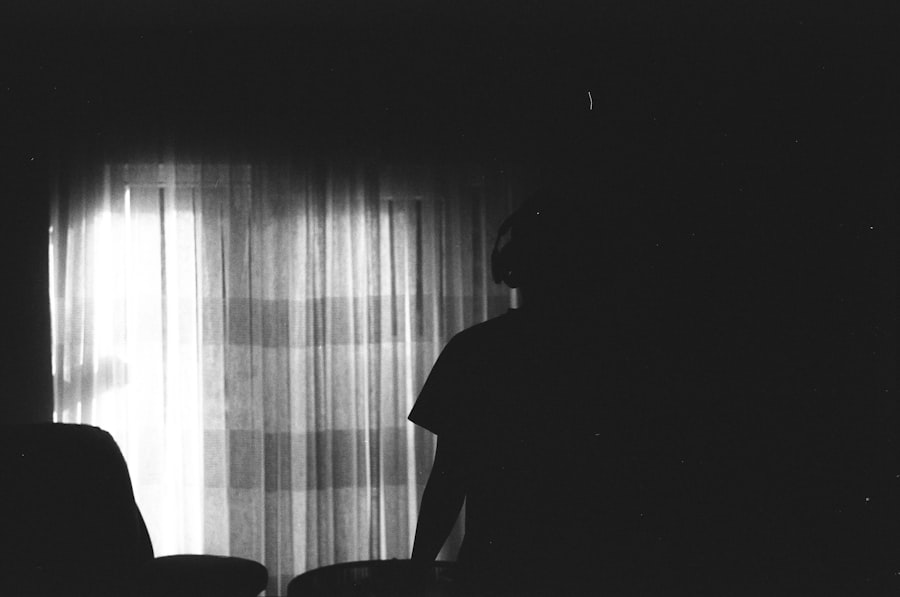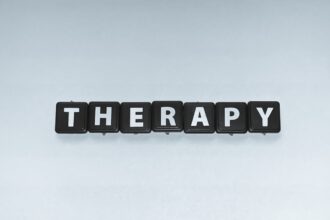Depersonalization Derealization Disorder (DPDR) is a complex mental health condition that can leave you feeling detached from your own thoughts, feelings, and sense of self. Imagine looking at yourself in a mirror and feeling as though the person staring back at you is a stranger. This sensation of disconnection can be unsettling and disorienting, often leading to a profound sense of confusion about your identity and reality.
DPDR is classified as a dissociative disorder, which means it involves a disconnection from your thoughts, memory, or sense of identity. You may find that this disorder manifests in two primary ways: depersonalization and derealization. Depersonalization refers to the feeling of being an outside observer of your own life, as if you are watching yourself from a distance.
Derealization, on the other hand, involves a sense of unreality regarding your surroundings, making the world seem foggy or dreamlike. These experiences can be distressing and may interfere with your daily life, relationships, and overall well-being. Understanding DPDR is the first step toward addressing its impact on your life.
Key Takeaways
- Depersonalization Derealization Disorder is a mental health condition characterized by feeling detached from oneself and the surrounding environment.
- Symptoms of Depersonalization Derealization Disorder include feeling like an outside observer of one’s thoughts and actions, emotional numbness, and distorted perception of time and space.
- Causes and triggers of Depersonalization Derealization Disorder may include trauma, stress, anxiety, and substance abuse.
- Diagnosis of Depersonalization Derealization Disorder involves a thorough evaluation of symptoms and ruling out other medical conditions. Treatment options may include therapy and medication.
- Depersonalization Derealization Disorder can be overcome with the help of therapy, medication, and support from loved ones. Coping strategies such as mindfulness and grounding techniques can also be helpful.
Symptoms and Effects of Depersonalization Derealization Disorder
The symptoms of DPDR can vary widely from person to person, but they often include feelings of detachment from oneself or one’s surroundings. You might experience a persistent sense of being disconnected from your body or thoughts, leading to feelings of numbness or emotional flatness. This can make it challenging to engage fully in life, as you may feel like a spectator rather than an active participant.
Additionally, you may struggle with memory issues, finding it difficult to recall events or experiences clearly. The effects of DPDR can extend beyond the immediate symptoms. You may find that your relationships suffer due to your inability to connect with others on an emotional level.
Friends and family might notice that you seem distant or preoccupied, which can lead to misunderstandings and feelings of isolation. Furthermore, the chronic nature of DPDR can contribute to anxiety and depression, as the ongoing struggle with these feelings can create a cycle of distress that is hard to break. Recognizing these symptoms and their effects is crucial for seeking appropriate help and support.
Causes and Triggers of Depersonalization Derealization Disorder

Understanding the causes and triggers of DPDR can be complex, as they often intertwine with individual experiences and psychological factors. One common factor is exposure to trauma or extreme stress. If you have experienced significant life events such as abuse, accidents, or the loss of a loved one, these experiences may trigger episodes of depersonalization or derealization.
In addition to trauma, other factors such as anxiety disorders, depression, and substance abuse can contribute to the onset of DPDR. You might find that periods of high anxiety or panic attacks can precipitate feelings of detachment.
Moreover, certain substances, including alcohol and recreational drugs, can exacerbate these symptoms or trigger episodes in susceptible individuals. Identifying your personal triggers is essential for managing the disorder effectively and developing strategies to cope with its effects.
Diagnosis and Treatment Options for Depersonalization Derealization Disorder
| Diagnosis and Treatment Options for Depersonalization Derealization Disorder | |
|---|---|
| Diagnosis | Depersonalization Derealization Disorder is diagnosed based on a thorough psychiatric evaluation, including a discussion of symptoms and medical history. |
| Symptoms | Symptoms may include feeling detached from oneself, feeling like an outside observer of one’s thoughts or body, and experiencing a sense of unreality. |
| Treatment Options | Treatment may include psychotherapy, such as cognitive behavioral therapy, and medication, such as antidepressants or anti-anxiety medications. |
| Prognosis | With proper treatment, many individuals with Depersonalization Derealization Disorder can experience significant improvement in their symptoms. |
Diagnosing DPDR typically involves a comprehensive evaluation by a mental health professional who will assess your symptoms and medical history. You may undergo interviews and questionnaires designed to gauge the severity and frequency of your experiences. It’s important to communicate openly about your feelings of detachment and any related symptoms you may be experiencing.
A proper diagnosis is crucial for determining the most effective treatment options tailored to your needs. Treatment for DPDR often includes psychotherapy as a primary approach. Cognitive-behavioral therapy (CBT) is particularly effective in helping you understand and reframe negative thought patterns associated with depersonalization and derealization.
Additionally, grounding techniques can be introduced to help you reconnect with reality during episodes. In some cases, medication may be prescribed to address underlying anxiety or depression that could be contributing to your symptoms. Collaborating with a mental health professional will enable you to explore various treatment options and find what works best for you.
Can Depersonalization Derealization Disorder be Overcome?
The journey toward overcoming DPDR can be challenging but not impossible. Many individuals find that with appropriate treatment and support, they can significantly reduce the frequency and intensity of their symptoms. It’s essential to approach this process with patience and self-compassion, recognizing that healing takes time.
You may experience setbacks along the way, but understanding that progress is not always linear can help you maintain hope. Moreover, many people report that their experiences with DPDR lead them to develop greater self-awareness and resilience. As you navigate through this disorder, you may discover new coping strategies and insights about yourself that empower you in other areas of your life.
While complete eradication of symptoms may not always be feasible, learning to manage them effectively can lead to a more fulfilling life where you feel more connected to yourself and the world around you.
Coping Strategies for Depersonalization Derealization Disorder

Implementing coping strategies can play a vital role in managing the symptoms of DPDR effectively. One approach is practicing mindfulness techniques that encourage you to stay present in the moment. Engaging in activities such as meditation or deep-breathing exercises can help ground you when feelings of detachment arise.
You might also find it beneficial to keep a journal where you document your thoughts and feelings; this practice can provide clarity and help you process your experiences. Another effective strategy is establishing a routine that includes physical activity, social interaction, and creative outlets. Regular exercise can boost your mood and reduce anxiety levels, while spending time with supportive friends or family members can help reinforce your sense of connection to others.
Engaging in creative activities such as art or music can also serve as an emotional outlet, allowing you to express feelings that may be difficult to articulate verbally.
Seeking Professional Help for Depersonalization Derealization Disorder
If you find yourself struggling with symptoms of DPDR, seeking professional help is an important step toward recovery. A mental health professional can provide guidance tailored specifically to your needs and help you navigate the complexities of this disorder. They will work with you to develop a personalized treatment plan that addresses both the symptoms of DPDR and any underlying issues contributing to your experience.
When seeking help, it’s essential to find a therapist who understands dissociative disorders and has experience working with individuals facing similar challenges.
Building a trusting relationship with your therapist will create a safe space for you to explore your feelings and work toward healing.
Support and Resources for Individuals with Depersonalization Derealization Disorder
Finding support is crucial when dealing with DPDR, as connecting with others who understand your experiences can provide comfort and validation. Support groups—whether in-person or online—can offer a sense of community where you can share your journey with others facing similar challenges. These groups often foster an environment where individuals can exchange coping strategies and encouragement.
Additionally, numerous resources are available for individuals seeking information about DPDR. Books, articles, and reputable websites dedicated to mental health can provide valuable insights into understanding the disorder better. You might also consider reaching out to organizations focused on mental health advocacy; they often offer resources for individuals living with dissociative disorders as well as their families.
In conclusion, navigating through Depersonalization Derealization Disorder can be daunting, but understanding its nature, symptoms, causes, and treatment options empowers you on your journey toward healing. By implementing coping strategies, seeking professional help, and connecting with supportive communities, you can work toward reclaiming your sense of self and reality. Remember that recovery is possible; take it one step at a time, and allow yourself grace along the way.
Depersonalization-derealization disorder (DPDR) can be a challenging condition, often leaving individuals feeling detached from their own thoughts and surroundings. While the journey to recovery varies for each person, many find that with appropriate treatment and support, symptoms can significantly improve or even go away over time. For those seeking more information on mental health and related disorders, an insightful article can be found on the Unplugged Psych website. This resource offers valuable perspectives and guidance on managing various psychological conditions. To explore more, visit the Unplugged Psych website.
LEARN MORE About Depersonalization & Derealization
FAQs
What is Depersonalization Derealization Disorder (DDD)?
Depersonalization Derealization Disorder (DDD) is a mental health condition characterized by feeling detached from oneself (depersonalization) and feeling detached from the world around them (derealization).
Can Depersonalization Derealization Disorder go away on its own?
In some cases, Depersonalization Derealization Disorder may go away on its own, especially if it is triggered by a specific event or stressor. However, for many individuals, the symptoms persist and may require treatment.
What are the treatment options for Depersonalization Derealization Disorder?
Treatment options for Depersonalization Derealization Disorder may include therapy (such as cognitive behavioral therapy), medication, and stress management techniques. It is important to seek professional help to determine the most appropriate treatment plan.
Is Depersonalization Derealization Disorder a lifelong condition?
For some individuals, Depersonalization Derealization Disorder may be a chronic condition, while for others, it may improve or go into remission with treatment. The prognosis varies from person to person.
What can I do if I think I have Depersonalization Derealization Disorder?
If you suspect that you may have Depersonalization Derealization Disorder, it is important to seek help from a mental health professional. They can provide an accurate diagnosis and recommend appropriate treatment options.




